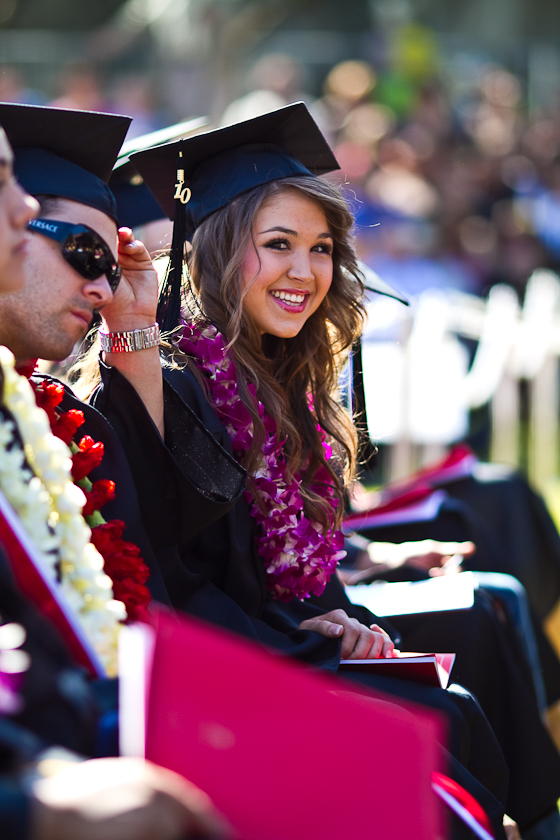The blissful first thought of committing to Biola is commonly a Facebook-worthy post; some would even argue Instagram-able. But for a roughly 30 percent of students, the next four years do not end in a Biola diploma.
Biola’s graduation rate of 69.8 percent is slightly lower in the scale of its 6,000 sister schools who have similar selectivity factors, according to Biola’s graduation rate disclosure. However, when compared to the rest of the schools in the Council for Christian Colleges and Universities, Biola’s rate leans toward the higher side. Biola’s graduation rate rests at a lofty 15 percent higher than the average graduation rate of schools in the CCCU.
Financial debt makes it difficult for students to graduate from Biola
Carrie Stockton, the director of academic advising and student retention, explained that financial debt is one reason students are unable to graduate.
Kim Schwaar, a sophomore business administration major, is still a student at Biola, but is considering leaving.
“It is out of my reach financially. Even with the financial aid, there is too much of a gap,” Schwaar said.
Far from her home in Mundelein, Ill. Schwaar also has a hard time with the distance. After her freshman year, however, she had established a close community of friends and a strong desire to stay.
Schwaar is resting heavily on the Lord’s provision and wisdom for her future.
“If he provides, I will be back!” Schwaar said.
For out-of-state students, Biola is a hard transition
Stockton added that students sometimes leave Biola to be closer to their family.
Heather Hilliker chose Biola right off the bat because of its 20-minute proximity to Disneyland and the reverie of living in the vacation hub of California. Over this past Thanksgiving break, her boyfriend surprised her with a proposal. She does not want the debt of an education at Biola to become a financial burden down the road in marriage. She has decided to return home to Sammamish, Wash. and is now a freshman vineyard studies and hospitalities major at Bellevue College along with her mother and fellow student, Kim Hilliker.
“It’s been great. We carpool!” Heather Hilliker exclaimed.
Students such as Jennie Gaultiere, on the other hand, left Biola after a year and a half because it was too close to home.
“I realized I had a longing to be at a school that was out of state,” Gaultiere said in an email. “I was ready to try something new.”
Gaultiere is happily working at two hair salons in Irvine presently, but is hoping to transfer to Baylor University in Waco, Texas this fall.
Biola's more long term programs affect the graduation rate
Stockton also stated that Biola’s four-year graduation rate is lower than some of the other sister schools because a few of the programs here require a longer timeframe for completion.
“We provide many five-year programs such as nursing, engineering, and sometimes education,” Stockton said.
A lot of the students endure the five years in order to complete their whole education; others can’t.
Biola is looking for reasons why students are leaving, she said, and then leading them toward curricular planning to make the more strategic decision in order to help them stay if they so desire.
Tanya Vos, a junior accounting major, decided last year to move along with her family to the much more seasonal state of Michigan. During interterm last year, Vos felt a strong calling to move to Michigan, even though she loved Biola and it was one of the biggest blessings in her life, she said. After counseling and prayer, Vos deemed it best to leave the sunny state of California.
“It was a tough adjustment,” Vos said. “It’s a very small town and there is lots of snow, which is weird!”
Vos now has become accustomed to Michigan and is working at Mocha-n-Music, a small coffee shop in Hudsonville, while attending Davenport University in Grand Rapids, Mich.
Being intentional with students through their college career
Despite the plethora of reasons for which students have chosen to leave, Biola desires to come alongside the student and help him or her in the decision-making process, Stockton said.
“Biola wants to see improvement in its four-year graduation rate and we plan to do that with intentional academic advising. We want to build systems or plans to be sure students get good information right away so that they can see their graduation — not just hope they are taking the right classes,” Stockton said.







